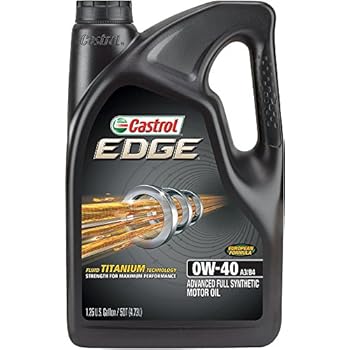How Often to Change Oil in a Ford V10
Regular oil changes are essential for keeping your Ford V10 engine running smoothly and lasting longer. This engine, commonly used in trucks, motorhomes, and other heavy-duty vehicles, works hard under tough conditions. How often you need to change the oil depends on factors like the type of oil you use, your driving habits, and the environment. Following the right schedule helps maintain performance, improve fuel efficiency, and prevent engine wear. Knowing the proper intervals ensures your Ford V10 stays reliable and efficient for years to come.
You should change the oil in a Ford V10 every 5,000 to 7,500 miles, depending on the type of oil and driving conditions. Synthetic oil lasts longer, while conventional oil may need more frequent changes. Regular oil changes keep the engine running well and prevent long-term damage.
We will talk about “How Often to Change Oil in a Ford V10” in this article.
Table of Contents
Importance of regular oil changes

Maintaining the health and smooth operation of your engine requires routine oil changes. Fresh oil reduces friction, prevents overheating, and removes dirt and sludge. Skipping oil changes can cause engine wear, lower fuel efficiency, and expensive repairs. Changing the oil on time ensures better performance and a longer life for your vehicle.
Overview of Ford V10 engines
The Ford V10 engine is a strong and reliable engine used in trucks, motorhomes, and heavy-duty vehicles. It has 10 cylinders and delivers good power and torque for towing and hauling. Known for its durability, the V10 is built to handle tough jobs and long drives. Regular maintenance, including oil changes, is key to keeping it performing well.
Also read: Will Dodge 8 Lug Wheels Fit a Ford ? Brief In Detail !
Manufacturer’s Recommendations
Standard Oil Change Intervals
Standard oil change intervals depend on the type of oil and driving conditions. For synthetic oil, it’s usually every 7,500 miles. For conventional oil, the range is 3,000 to 5,000 miles. Regular changes help protect the engine, improve performance, and prevent costly repairs. Always check your vehicle’s manual for the recommended schedule.
Factors Affecting Oil Change Frequency
Driving habits, the type of oil used, and environmental conditions all affect how often you need to change your oil. Towing heavy loads, frequent short trips, and extreme weather conditions can shorten oil change intervals. When compared to regular oil, using synthetic oil can lengthen the interval between changes.
Conventional vs. Synthetic Oil
Benefits of Synthetic Oil for Ford V10
Synthetic oil offers better protection, improves engine efficiency, and performs well under extreme conditions. It resists breakdown longer, reduces engine wear, and maintains better lubrication. For a Ford V10, using synthetic oil can help extend the engine’s life and maintain optimal performance.
Drawbacks of Conventional Oil
Conventional oil breaks down faster and offers less protection than synthetic oil. It needs more frequent changes, especially in harsh conditions. This can lead to more wear and tear on the engine and reduced overall performance.
Driving Conditions and Their Impact

Normal Driving vs. Severe Driving
Normal driving involves less stress on the engine, while severe driving conditions, like frequent short trips or heavy towing, put more strain on the oil. These conditions may require more frequent oil changes to maintain the engine’s performance and prevent wear.
Also read: Ford Vehicle Tracking Not Working: Troubleshooting Guide
Towing and Hauling Considerations
Towing and hauling put extra stress on a Ford V10 engine, which can lead to oil breakdown quicker. When towing heavy loads, it’s important to change the oil more frequently to protect the engine and maintain optimal performance. Regular oil changes ensure the engine stays well-lubricated under these demanding conditions.
Effects of Weather Conditions
Weather conditions have a big impact on daily life. They can affect things such as travel, outdoor activities, and health. For example, heavy rain can cause flooding, while extreme heat can lead to dehydration. Cold weather can increase the risk of illnesses, like colds and flu. People also adjust their routines based on the weather, choosing indoor activities during bad weather and outdoor ones in good weather.
Signs It’s Time for an Oil Change
Dashboard Oil Light
The dashboard oil light in a car is an important warning signal. It turns on when the engine oil is low or there is a problem with the oil pressure. If this light comes on, it’s important to check the oil level and quality. Ignoring it can cause engine damage. If the light stays on, it’s best to get the car checked by a mechanic to avoid further issues.
Unusual Engine Noises
Unusual engine noises in a car can be a sign of a problem. Common sounds like knocking, grinding, or squealing may indicate issues with parts such as the engine, belts, or exhaust system. These noises should not be ignored, as they can lead to serious damage if not fixed. If you hear strange sounds, it’s important to have the car checked by a mechanic to find and fix the problem.
Decreased Fuel Efficiency
Decreased fuel efficiency means your car is using more fuel than usual. This can happen for several reasons, such as low tire pressure, dirty air filters, or engine problems. Driving habits, like fast acceleration or frequent braking, can also lower fuel efficiency. If you notice you’re filling up more often, it’s a good idea to get your car checked. Regular maintenance and careful driving can help improve fuel efficiency and save money on gas.
DIY Oil Changes vs. Professional Service
Pros and Cons of Doing It Yourself
Doing it yourself (DIY) has both pros and cons. On the positive side, it can save money, give you a sense of accomplishment, and help you learn new skills. However, there are also drawbacks. DIY can take more time and effort, and if you’re not experienced, mistakes can lead to extra costs or damage. Sometimes, it’s better to hire a professional, especially for complicated tasks that require special tools or knowledge.
Benefits of Professional Maintenance
Professional maintenance offers many benefits. Experts have the right tools and experience to do the job properly, which can prevent future problems. They can spot issues early and fix them before they become serious, saving you money in the long run. Professional maintenance can also increase the lifespan of your equipment or vehicle, ensuring it runs smoothly and safely. Regular check-ups help keep everything in good condition and reduce the risk of unexpected breakdowns.
Recommended Oil Types for Ford V10

Ford’s Approved Oil Specifications
Ford’s approved oil specifications are guidelines for choosing the right engine oil for Ford vehicles. These specifications ensure that the oil provides proper lubrication, protection, and performance for the engine. Using the right oil helps the engine run smoothly and efficiently, while preventing damage. Ford recommends checking the owner’s manual for the exact oil type, viscosity, and certifications required for your specific model. Following these guidelines can improve engine life and performance.
Importance of Using the Right Oil
Using the right oil in your vehicle is very important for engine health. It helps reduce friction, prevents overheating, and protects against wear and tear. The correct oil ensures the engine runs smoothly, improves fuel efficiency, and extends the life of the engine. Using the wrong oil can lead to engine damage, poor performance, and higher repair costs. Always check your vehicle’s manual for the right oil type and grade.
Also read: Ford SYNC Microphone Not Working: A Comprehensive Guide 2024!
Maintaining a Regular Schedule
Keeping a Maintenance Log
Keeping a maintenance log is important for tracking your vehicle’s or equipment’s service history. It helps you remember when to perform regular checks, like oil changes or tire rotations. A log makes it easier to spot problems early and plan repairs. It also provides proof of maintenance for resale or warranty purposes. By writing down dates and details, you ensure that your vehicle or equipment stays in good condition.
Benefits of Regular Maintenance for Longevity
Regular maintenance helps keep your vehicle or equipment running smoothly for a long time. It prevents major breakdowns by fixing small issues before they get worse. Regular checks, like oil changes or tire rotations, improve performance and efficiency. This also saves money on repairs and reduces the risk of unexpected problems. With proper care, your vehicle or equipment can last longer, giving you better value over time.
Conclusion
In conclusion, regular oil changes are essential to keeping your Ford V10 engine running well and lasting longer. By following the recommended oil change intervals and using the right oil, you can prevent engine damage, improve performance, and save money on repairs. Whether you choose to change the oil yourself or use professional services, staying on top of maintenance will ensure your vehicle stays reliable for years to come. For detailed instructions, consult your owner’s handbook at all times.
FAQs
How many miles can I drive between oil changes in a Ford V10?
For a Ford V10, it’s generally recommended to change the oil every 5,000 to 7,500 miles, depending on driving conditions and the type of oil used.For advice, always consult your owner’s manual.
Is synthetic oil better for my Ford V10 engine?
Synthetic oil is a good choice for your Ford V10 engine. It provides better protection, lasts longer, and helps the engine run smoothly, especially in extreme temperatures.
Can I change my Ford V10 oil myself?
Yes, you can change the oil in your Ford V10 yourself. You just need the right tools, oil, and filter, plus basic knowledge of the process to do it safely and correctly.
How do I know which oil to use for my Ford V10?
To choose the right oil for your Ford V10, check the owner’s manual for recommended oil type and viscosity. Generally, a high-quality synthetic oil works well for most conditions.
What happens if I delay an oil change?
Delaying an oil change can lead to engine wear, overheating, and poor performance. The oil may become dirty, reducing its ability to protect the engine and causing potential damage over time.






